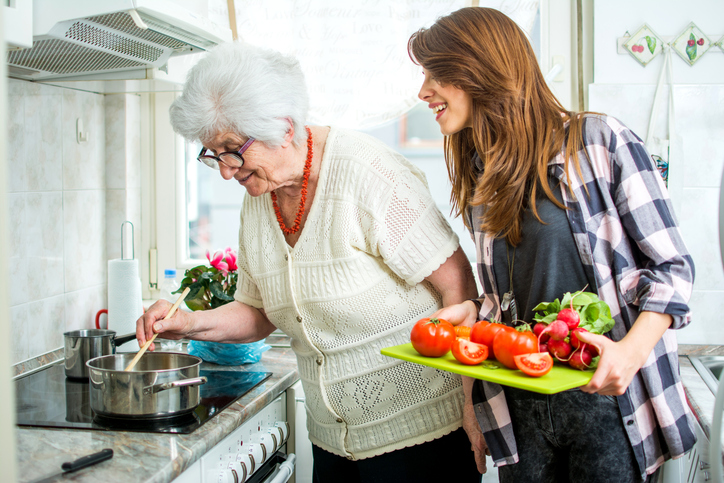Preparing and eating food is a necessity. There are many cognitive and emotional benefits that can be gained from cooking. This article from Culinary Schools discusses guidelines for keeping Alzheimer’s patients safe, while still enjoying the many benefits of being in the kitchen.
Many Alzheimer’s patients lose interest in activities they once enjoyed. Bringing back cooking can bring more freedom and independence despite their disease process. Cooking a meal that they used to cook for their family can spark memories. It can also bring a sense of peace by enjoying something positive from their past.
Cooking can be a bonding experience for the caregiver and patient as well. Music combined with cooking can bring joy in the moment and relieve stress. It can help the Alzheimer’s patient’s behavioral issues. This ultimately can help the caregiver, the family and the Alzheimer’s patient relax. They can really enjoy the time they spend together. It is also important to keep in mind that there is a correlation between unhealthy eating and negative emotions and behaviors. Therefore, helping prepare nutritious foods is about mental and emotional health as much as it is about physical.
But what if they turn on the stove and forget to turn it off? It can be worrisome for an Alzheimer’s patient to cook alone (understatement of the century). Assisting them by giving them simpler tasks can be helpful. It still allows them to contribute, but with supervision. It allows the Alzheimer’s patient to maintain a sense of dignity and self worth. Repetitive activities such as stirring (healthy) cake batter can be soothing and calming.
One of our client’s has a caregiver who loves to be in the kitchen. She works from the client’s handwritten family recipes and includes the client in the process as much as possible. They play the client’s favorite music while they are cooking. It is truly lovely to witness. And the benefits of being in the kitchen include nutritious and delicious results, which serve to elevate everyone’s mood.


